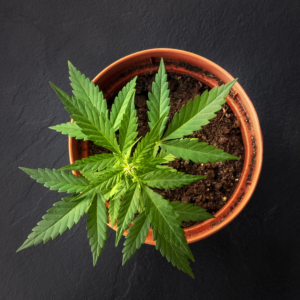The "War on Drugs" has been a massive failure. But there is a new force in the market, marijuana legalization. The war on drugs was a massive campaign that began stirring in
American politics way back in 1914 and was popularized by President
Nixon
and, later, President George H. W. Bush. This war on drugs has been an
expensive and tragically ineffective
program
that costs the American people approximately $500 each
second.
While the war on drugs has historically been meant to discourage and
block the distribution and use of recreational drugs, it has actually
had the reverse
effect.
As the war on drugs has escalated in both expense and intensity, the
price placed on illegal drugs has skyrocketed in places like Mexico.
This has resulted in more drug-related fighting resulting in 85,000
people
being killed in Mexico alone since 2006 when then-President Felipe
Calderón signed-off on a military response to drug cartels. It has also
resulted in no fewer drugs crossing the American border – with one
notable exception. The exception is marijuana and the reason for this is
the widespread legalization of the plant throughout the United States.
So, is it possible that we’re actually discouraging smugglers from
transporting and growing marijuana… by legalizing it? The answer is
yes and, so far, legalization has proven to be a far more effective
strategy to discourage illegal drug cartels than the War on Drugs has
ever been.
Here’s what you need to know.
Legalization and Crashing Drug Prices
Before the legalization of marijuana in the U.S., most cannabis bought
and sold here had been grown in and smuggled from Mexico. This drove the
price of marijuana in Mexico to historic heights – at one time up to
$90 for a
kilogram.
Those exorbitant cannabis prices had a wider effect than many people
think. In addition to encouraging Mexican drug lords to continue in
their brutal and illegal industries, high cannabis prices also torpedoed
the Mexican government’s attempt to help citizens build local economies
by growing legal crops. Because the financial prospect of growing and
selling marijuana was so appealing, many Mexican citizens gravitated
toward it (and, ergo, toward the dangerous job of working for the
Cartels).
Today, however, the price of marijuana has dropped, which has thrown the
Mexican cartels into dire straits. This, in turn, has led to much less
cannabis crossing the border via Mexican smugglers. According to a
report by Time
Magazine, the
U.S. Border Patrol seized 2.5 million pounds of Marijuana in 2011. By
2014, that number had dipped to 1.9 million pounds. This decline doesn’t
have much to do with the War on Drugs, however. Instead, it’s due to the
legalization of marijuana across the U.S.
How American Legalization has Destroyed Mexican Demand
As affordable, legal marijuana becomes more prevalent in the U.S., the
demand for smuggled marijuana from Mexico has fallen flat on its face.
In 2008, roughly
two-thirds of
all the cannabis consumed by U.S. citizens was imported from Mexico.
Today, that number has fallen to roughly one-third. Likewise, cannabis
accounted for 20%-30% of the Mexican drug cartels’ revenue as recently
as 2008.
As legalization has swept the U.S., though, these numbers have
plummeted. Now that there is plenty of quality, affordable marijuana
available legally to consumers in the U.S., there’s virtually no need to
purchase expensive varieties from Mexico which are almost certainly
linked to violent cartel activity.
In what is possibly one of the largest victories linked to the American
legalization of cannabis, Mexico itself is now considering adopting laws
like the U.S. has, which would decriminalize or legalize
cannabis in
certain settings. If these laws go through, it would represent the final
straw for the powerful and dangerous cartels in Mexico – decimating
their profits and obliterating the demand for their products.
The Future of Legalization and Mexican Marijuana: Why Pending States Should Follow California’s Lead
As waves of legalization continue to sweep the U.S., it stands to reason
that we’ll keep seeing a decline in the price of, and demand for,
marijuana from Mexico. Despite the fact that the Federal Government has
spent upwards of $15 billion on the War on Drugs since 2010 alone, it’s
clear that this approach has never been the most effective one.
In addition to making marijuana rare, and thus increasing the demand and
price of the product, the War on Drugs has only allowed the Mexican
cartels to be more brutal than ever before.
Because of this, legalization is the only thing that truly has the
potential to put the cartels out of business. When quality cannabis is
available to consumers from right here in the U.S., the demand for
Mexican products falls sharply. Because of this, states like
Illinois,
Florida, Georgia, Kansas, Utah, West Virginia, and Wisconsin (all of
which have pending marijuana
legislation
on the ballot for 2016) would be well-served to follow California’s lead
to make medicinal cannabis easily accessible to consumers. This year
California too has legalization as a initiative on the November ballot.
In addition to being the most common-sense approach to destroying the
drug crime that’s been running rampant in Mexico for the last several
years, improving consumer access to legalized marijuana is one of the
best ways for U.S. lawmakers and citizens to further deplete the Mexican
marijuana market. With California as a model to follow, legalizing
marijuana throughout all states is an efficient way for U.S. lawmakers
to ensure that drug crime, high marijuana prices, violence, and
destroyed economies become a thing of the past in Mexico.






